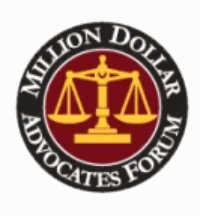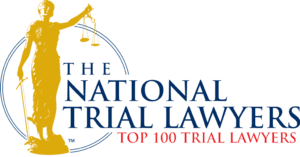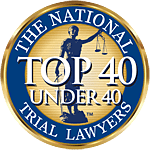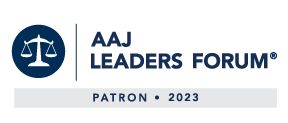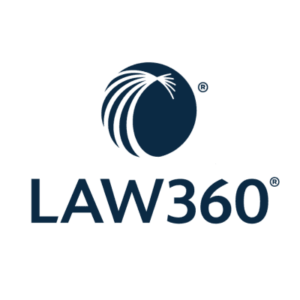

Hundreds of Millions Recovered for Our Vaccine Injury Clients
VACCINE INJURY COMPENSATION
Reviewed By Anne Carrión Toale, Vaccine Injury Attorney
Vaccine Injury Claims: We handle the hard part so you can focus on your recovery
At mctlaw, we understand how overwhelming it can be to experience a vaccine injury. You may feel unsure of what to do next, or worried about how to cover medical expenses.
Our legal team is here to help you every step of the way, guiding you through the Vaccine Injury Compensation Program (VICP) and working to get you the compensation you deserve.
We’ve represented thousands of clients nationwide, and we never charge you any legal fees. You focus on your health—we’ll handle the rest.
What to expect from mctlaw
Vaccine injuries, while rare, can be life-changing. If you or a loved one has suffered severe reactions, our experienced attorneys can help. We’ve won hundreds of millions of dollars for our vaccine injury clients, and we’re committed to providing you with the same level of care and dedication.
You pay no legal fees — Ever
One of the biggest concerns people have is the cost of hiring a lawyer. With us, there are NO legal fees. The VICP pays for your legal representation, so you can focus on your recovery while we fight for your compensation. No contingency fee. No hourly fee. No legal fees to you. Ever.
We handle the complexities for you
Navigating vaccine injury claims can be confusing, but our attorneys have more than 25 years of experience handling cases in this highly specialized area of law. We’re with you from start to finish, paying for all the costs associated with your case so you NEVER have to worry about expenses. This includes filing fees, medical record collection, and expert testimonies.
Why choose the vaccine injury lawyers at mctlaw?
For more than 25 years, mctlaw has fought for thousands of people suffering severe vaccine reactions, securing hundreds of millions of dollars in compensation for our clients.
- We have helped more clients get compensation in the past 5 years than any other law firm in the United States.
- Our attorneys won the largest single financial award for a client in the vaccine program’s history.
- Our lawyers represent clients nationwide in all 50 states and all US territories.
- We have worked in the VICP for more than 25 years.
- See the evidence of our work in our vaccine injury case results.
IMPORTANT: This information does NOT apply to injuries from the COVID-19 vaccine.
Frequently Asked Questions
Why is the Covid-19 vaccine NOT covered by the Vaccine Injury Compensation Program?
The Covid-19 Vaccine is covered by a different program called the Countermeasures Injury Compensation Program.
What can I do if I have a severe reaction to a vaccine?
You may be eligible to file a claim in the Vaccine Injury Compensation Program. Contact our legal team to find out if you qualify.
What is the Vaccine Injury Compensation Program?
The National Vaccine Injury Compensation Program (Vaccine Injury Compensation Program) was created by Congress in 1986 after a series of lawsuits against vaccine manufacturers threatened to create vaccine shortages. So far, this federal trust fund paid out billions of dollars in damages to thousands of people suffering from adverse reactions to vaccinations. Billions of dollars are available for future compensations as well.
What vaccines are covered by the VICP?
Covered vaccines include:
- Seasonal Flu Shot
- Tetanus Toxoid-Containing Vaccines – DTaP, Tdap, DTP-Hib, DT, Td, TT
- Pertussis Antigen-Containing Vaccines – DTaP, Tdap, DTP, P, DTP-Hib
- Measles, Mumps & Rubella Virus-Containing Vaccines in any Combination – MMR, MR, M, R
- Rubella Virus-Containing Vaccines – MMR, MR, R
- Measles Virus-Containing Vaccines – MMR, MR, M
- Polio Live Virus Vaccines – OPV
- Hepatitis B Antigen-Containing Vaccines
- Hemophilus Influenzae – Type B Polysaccharide Conjugate Vaccines
- Varicella Vaccine – Chickenpox Virus Vaccine
- Rotavirus Vaccine
- Pneumococcal Conjugate Vaccines
- Hepatitis A Vaccines
- Meningococcal Vaccines – Meningococcal Polysaccharide Vaccine (MPSV4), Meningococcal Conjugate Vaccine (MCV4)
- Human Papillomavirus (HPV) Vaccines
- Polio Inactivated Virus – IPV
What Vaccines are NOT Covered by the VICP?
The Covid-19 Vaccine is NOT covered. If your injury is a result of one of the vaccinations listed below, you are ineligible for the Vaccine Injury Compensation Program.
- Covid-19 Vaccine
- Pneumococcal polysaccharide vaccines meant for older adults – PPSV23
- RSV or respiratory syncytial virus
- Shingles (Herpes Zoster) Vaccine
- Rabies
- Anthrax
- Smallpox
- Yellow Fever
- Tuberculosis (TB)
- Typhoid Fever
Do I need to be a US citizen to file a claim in the VICP?
You do not need to be a citizen of the United States to file a claim. Usually, the vaccine must have been administered in the United States or one of its territories to bring a claim. Some people who receive vaccines outside of the U.S. may be eligible for compensation.
In order to be covered by the Vaccine Program when overseas, the injured person must be a U.S. citizen serving in the military or a U.S. government employee or have been a dependent of such a citizen; or the injured person must have received a vaccine manufactured by a vaccine company located in the U.S. and returned to the U.S. within 6 months after the date of vaccination.
How is a claim filed in the Vaccine Injury Compensation Program?
Your claim is starts by filing a petition with the Court of Federal Claims in Washington, D.C. Once the petition is filed, a Special Master is assigned to the case. A Special Master is a type of judge that handles only vaccine injury claims. The Special Master decides the outcome of the case instead of a jury.
What Kind of Information Do You Need in Order To Build My Vaccine Injury Case?
The first thing we do in your case is get a copies of all the medical records related to your vaccine injury. We are then required to turn over a copy of your complete and comprehensive medical records to the Court.
How does the claim process work?
The Department of Health and Human Services (HHS) acts as the defendant in these cases. It is represented by Department of Justice (DOJ) attorneys throughout the process.
HHS reviews your petition and decides whether to dispute your claim that the vaccine caused the injury or to concede that the vaccine was responsible. If HHS concedes that the vaccine did cause the injury, the next step is to determine the value of the damages. However, if this cannot be agreed on, then there is a trial (called a hearing) on the topic of damages before the Special Master.
What happens at a vaccine injury trial?
You may testify and so may some of your family or friends. It may be helpful to have your doctors testify. An expert physician hired on your behalf will testify about how the vaccine caused the injury.
Then, at least one Health and Human Services expert witness will likely testify as to why the vaccine did not cause the injury. Following this, the Special Master will decide whether the vaccine caused the injury.
If the Special Master decides in your favor, then we go on to the issue of damages. If we cannot agree with HHS as to the value of the damages, there will be a second trial to determine the amount of compensation.
How long does it take to get compensated for a vaccine injury?
This process is designed to be quicker than civil litigation. With some exceptions, it usually is. A hearing on whether the vaccine caused the injury often occurs within a year. Cases that settle can conclude in as little as a year. Other cases, despite our best efforts, can take several years.
How much money will I get from a vaccine injury settlement?
Compensation includes monetary damages for pain and suffering, past and future medical expenses, past and future lost wages, and reasonable attorneys’ fees and costs. Compensation paid out for pain and suffering is limited to a maximum of $250,000. There is no limit of compensation for medical expenses and lost wages.
Where Can I See Your Firm’s Vaccine Injury Case Results?
You can review more than 700 of our vaccine injury case result amounts here.
Should I Hire a Personal Injury Lawyer for a Vaccine Injury Case?
We strongly believe that attorneys who practice primarily vaccine injury law are best suited to these cases. You can read more about why most personal injury lawyers may not have the right experience or have a bar admission to practice in the VICP.
How Much Does it Cost to Hire a Vaccine Injury Lawyer Cost?
It costs you nothing. A case evaluation is free. Plus, the Vaccine Injury Compensation Program pays for attorneys’ fees, so you won’t pay anything out of pocket for us to represent you in a vaccine injury case.
Meet Our Vaccine Injury Attorneys












Common Vaccine Reactions & Disorders

About the VICP
Right now more than $4 billion dollars is available to pay out people with vaccine injuries. More than $5.4 billion dollars has already been paid by the VICP since 1988. Find out about how the program works and if you qualify.

Vaccine Injury Payouts
The Vaccine Injury Compensation Program, or the VICP, provides no-fault compensation to individuals who have suffered injuries after receiving certain vaccines. Since 1988, the vaccine court has awarded more than 9,200 payouts totaling to more than $5.4 billion dollars.

Filing a Vaccine Injury Claim
Filing a vaccine claim is a complicated and adversarial process. Vaccine Cases are not typical personal injury cases. A vaccine lawyer needs to be a member Court of Federal Claims Bar and should also be highly experienced in litigating vaccine injury cases in the Vaccine Court.

Vaccinations
The Vaccine Injury Compensation Program, or the VICP, provides compensation for reactions to certain vaccines. Some of the vaccines that are covered are the Flu Vaccine, Chicken Pox Vaccine, HPV Vaccine, the Rotavirus Vaccine, and more.
Having Trouble Deciding Who Will Represent You in Your Vaccine Case?
We make it easy with our simple guide to choosing the right lawyer for your vaccine case.
Connect with us:
Content Reviewed by Anne Carrión Toale – Vaccine Injury Lawyer

Anne Carrión Toale, Esq. is a vaccine injury attorney at mctlaw. Anne helps vaccine injury clients get compensation from the National Vaccine Injury Compensation Program (NVICP) before the Vaccine Court in the United States Court of Federal Claims. Ms. Toale has served as past president of the Vaccine Injured Petitioners Bar Association, where she provided education and assistance to other attorneys throughout the United States practicing in the area of vaccine injury compensation.
This page was last updated on:
References
US Department of Health and Human Services, Health Resources and Services Administration. Available at: https://www.hrsa.gov/vaccine-compensation/covered-vaccines/index.html. Last Accessed March 5, 2020.
United States Court of Federal Claims. Vaccine Claims/Office of Special Masters. https://www.uscfc.uscourts.gov/vaccine-programoffice-special-masters. Last Accessed March 5, 2020.


Find out right now if you have a vaccine injury claim
Your Case Review is Free. Don’t Wait to Get Help Because There is a Deadline.
The COVID-19 Vaccine is NOT Eligible

As an experienced leader in these types of lawsuits, we were confident the firm would have the expertise. However, what surprised us most was the high level of excellent customer service from the firm’s staff!
Pat R.
I can’t recommend this firm enough. They have an outstanding team that truly care for their clients…I have been awarded a fair six figure settlement.
Nate M.
When I say “they went to bat” for me…this Law Firm literally did just that. They persevered to bring the hard-nosed Manufacturer to settle and provide me some recompense for everything I had to endure which led to this suit.
Me’Chelle



